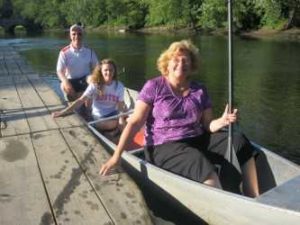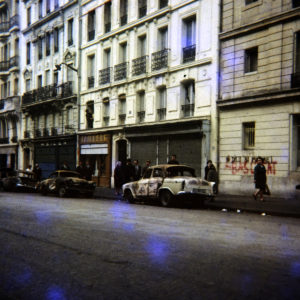By Tom O’Malley
“The life in us is like the waters in a river,” HDT
What is it about rivers?
They pull us in and push us along. Sometimes, rivers will sweep us away, but I think that is only because they get excited when we accept their invitations. Rivers can be sociable, but can get out of control in their enthusiasm. Funny, I live right near a famous river, the Niagara. I have swam in it, boated on it, walked along it and have been hypnotized by it. My wife Meg and I love to drive along the Canadian side of the Niagara from Fort Erie to Niagara on the Lake. It is a time machine with passing glimpses of British forts and quiet villages. Such a slow and pretty drive.
Still, I don’t feel the warm attachment to this river that I do for the Concord River in Massachusetts. The Niagara is a powerful god, a Poseidon the earth shaker, a ribbon of fear that sweeps toward oblivion at the Falls. If the Niagara is a time machine, then the Falls are the fearful Apocalypse that lurks in the darker pages of the Bible.
The Concord is the river of peace, as its name suggests. I prefer its Algonquin name, the Musketaquid or river of grassy banks. This river moves so slowly that Nathaniel Hawthorne, an avid boater, was never sure of the direction of its current when he lived up at Emerson’s Old Manse in the 1840’s.
I have walked and paddled on the Concord many times. It is never a fearful place, even when I was caught in a rainstorm a few years ago. The trees and bridges seem to spring up whenever shelter is required. The gentle river is always inviting , protective and generous.
As I floated down the Concord just a short time ago, I couldn’t help but recall my secret image of this river as a concrete image of time. In fact, the Concord is timeless. We floated past 18th Century farm houses shaded by trees that were seeded during the American Revolution. I could clearly feel and see Emerson walking along the banks with Henry Thoreau. Their poetry was written on these waters and continues to nourish the generations that spring up along its shore. Geese still jet over our heads while frogs sit meditating on logs.
Soon we approach the Old North Bridge, surely the birthplace of American independence. It is hard to imagine that an epic battle was once fought in these pastoral fields. To our right, we see the Old Manse, a house built by Reverend William Emerson and home to his grandson Ralph Waldo Emerson and later to Nathaniel Hawthorne, who enjoyed writing haunting stories while watching the river float by his window.
Back on land, time seems like a straight line as we mark off the days, months and years. While we are carried along by this mystic water, time has no meaning. The Native peoples still make treaties near Egg Rock, while up ahead, stout Concord farmers trade their plows for muskets. The transcendentalists learn to see heaven on earth, and I float along through all of it in the company of those I love the most. Here there is no dreary human time, only the bells of shared experience and visible manifestations of wonder. Every time.
Tom O’Malley is an adjunct professor of English at Canisius College.



